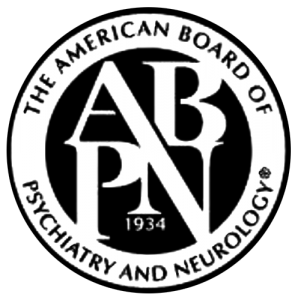AUTISM SPECTRUM DISORDER
Finding the right help
What is Autism Spectrum Disorder?
Autism spectrum disorder (ASD) is a neurological and developmental disorder that begins early in childhood and lasts throughout a person’s life. It affects how a person acts and interacts with others, communicates, and learns. It includes what used to be known as Asperger syndrome and pervasive developmental disorders.
It is called a “spectrum” disorder because people with ASD can have a range of symptoms. People with ASD might have problems talking with you, or they might not look you in the eye when you talk to them. They may also have restricted interests and repetitive behaviors. They may spend a lot of time putting things in order, or they may say the same sentence again and again. They may often seem to be in their “own world.”
The causes of ASD are not known. Research suggests that both genes and environment play important roles. There is currently no one standard treatment for ASD. There are many ways to increase your child’s ability to grow and learn new skills. Starting them early can lead to better results.
Treatments include behavior and communication therapies, skills training, and medicines to control symptoms.
The severity of symptoms varies greatly, but all people with autism have some core symptoms in the areas of:
- Social interactions and relationships.
- Significant problems developing nonverbal communication skills, such as eye-to-eye gazing, facial expressions, and body posture.
- Failure to establish friendships with children the same age.
- Lack of interest in sharing enjoyment, interests, or achievements with other people.
- Lack of empathy. People with autism may have difficulty understanding another person’s feelings, such as pain or sorrow.
Verbal and nonverbal communication. Symptoms may include:
- Delay in, or lack of, learning to talk. As many as 40% of people with autism never speak.
- Problems taking steps to start a conversation. Also, people with autism have difficulties continuing a conversation after it has begun.
- Stereotyped and repetitive use of language. People with autism often repeat over and over a phrase they have heard previously (echolalia).
- Difficulty understanding their listener’s perspective. For example, a person with autism may not understand that someone is using humor. They may interpret the communication word for word and fail to catch the implied meaning.
Limited interests in activities or play. Symptoms may include:
- An unusual focus on pieces. Younger children with autism often focus on parts of toys, such as the wheels on a car, rather than playing with the entire toy.
- Preoccupation with certain topics. For example, older children and adults may be fascinated by video games, trading cards, or license plates.
- A need for sameness and routines. For example, a child with autism may always need to eat bread before salad and insist on driving the same route every day to school.
Atlanta Location
750 Hammond Drive
Building 14, Suite 100
Atlanta, Georgia 30328
Phone: 678-615-7032
Fax: 678-281-0592
Alpharetta Location
11539 Park Woods Circle,
Suite 603, Alpharetta, Georgia 30005
Phone: 678-615-7032
Fax: 678-281-0592
BOARD CERTIFIED by the American Board of Psychiatry and Neurology

Young Minds Psychiatry serves the following areas among others:
Atlanta, Dunwoody, Johns Creek, Decatur, Alpharetta, Marietta, Roswell, East Cobb, Sandy Springs
